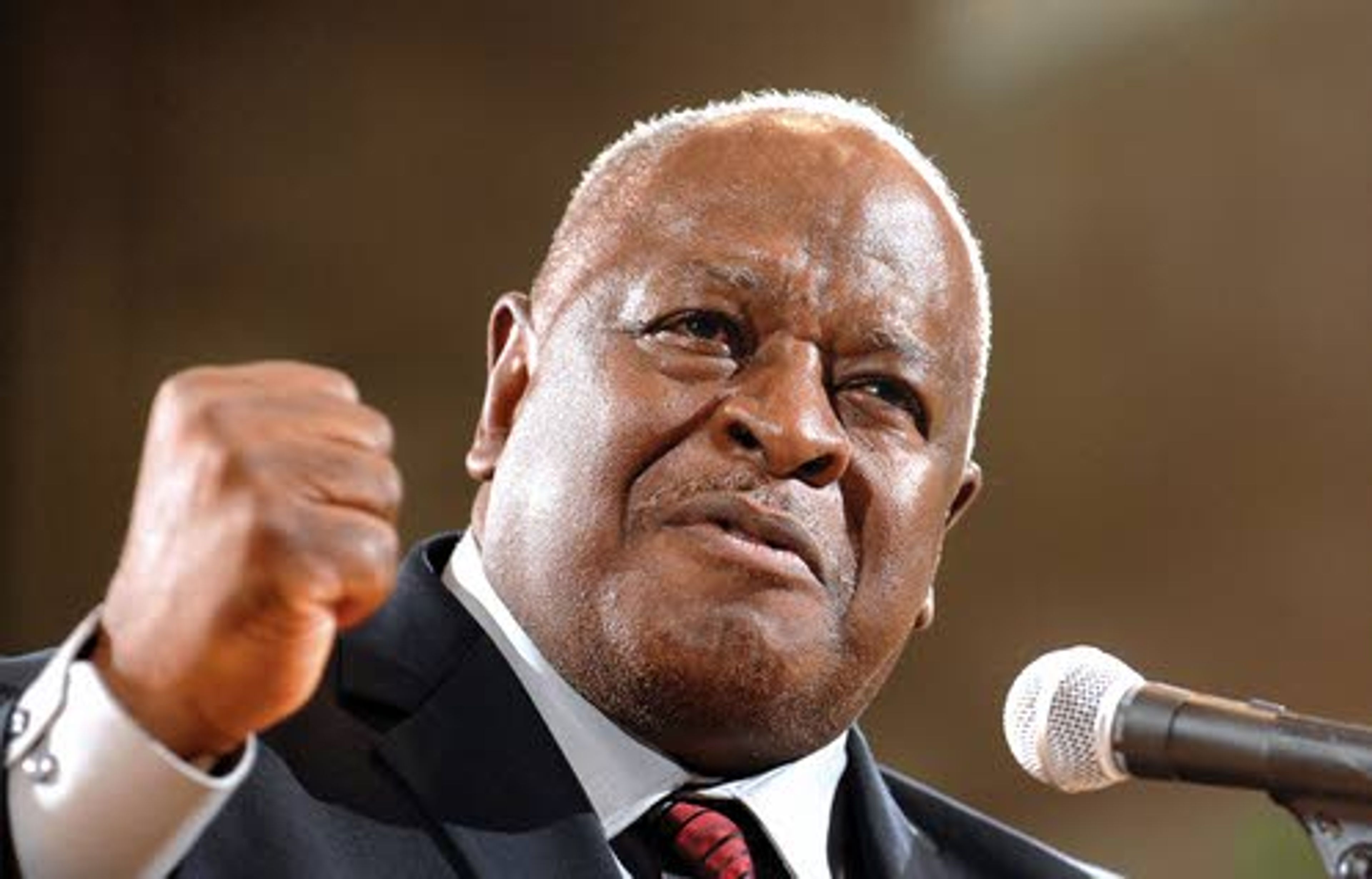Spokane civil rights leader and pastor Happy Watkins dies at 82
Pastor known for reciting MLK’s speech in Lewiston
SPOKANE — Percy “Happy” Watkins, who co-founded Spokane’s annual march commemorating the Rev. Martin Luther King Jr. and was a longtime voice in the drive for civil rights in Spokane, died Friday. He was 82.
For decades he was known for giving voice to King as he recited King’s “I Have a Dream” speech every year at Spokane’s annual Martin Luther King Jr. Day march. The tradition of his annual recitation started as early as 1971 — only three years after King was assassinated.
“It is with a heavy heart that we learn about the passing of Reverend Happy Watkins. Born in the Bronx, but a Spokanite in heart and soul since 1961, he has served our community with a heart of gold and helped us remember the words of Dr. King as he recited the ‘I Have a Dream’ speech every year like clockwork and at events throughout the year,” Spokane City Council President Betsy Wilkerson wrote on Facebook.
Watkins was longtime pastor of New Hope Baptist Church — leading the church since 1990 until his retirement in 2018. He and his close friend Ivan Bush, another prominent civil rights leader in Spokane, organized the annual King march in Spokane for decades.
Born in the Bronx, Watkins came to Spokane in 1961 as an airman stationed at Fairchild Air Force Base. In a 2018 profile Watkins expressed his bewilderment at the comparatively rural and white Spokane.
“I was 19 and half years old and I started crying … (I was told) about bears, severe winters. I was destroyed,” he recalled at the time.
Still, Watkins found community in the church and soon called Spokane home.
Over the course of more than 60 years in the city, Watkins worked as an insurance salesman, opened a BBQ restaurant, ran for city council, led the local NAACP, married his wife Etta and raised four sons.
Spokane Superior Court Judge Breean Beggs said Watkins always had an encouraging word for him. Beggs is the former director of the Spokane Center for Justice, which focused on civil rights issues.
“To me Happy was the symbol of belonging in Spokane County. More than anyone I know, he exemplified that,” said Beggs, a former Spokane City Council president. “He made Spokane a better place.”
Steve Corker, who served eight years on the Spokane City Council from 2008 to 2011, said Watkins was a like a “surrogate father” to him.
“I’m going to miss him,” Corker said. “He was a kind, good human being and we need more of them. He was willing to talk and willing to bring people together, and we need more of that, too.”
Corker and Watkins were active in Democratic politics in the 1970s, Corker said.
He said Watkins mentored him during that time when Corker was in his 30s and relatively new to Spokane and politics.
“He was one of the kindest individuals I ever met in the city of Spokane,” Corker said.
Watkins helped him understand minority issues during his early political career and both were involved in the campaign of James Chase, who was elected in 1981 as Spokane’s first Black mayor.
Like many people, Corker fondly recalled Watkins’ recitation of Martin Luther King Jr.’s “I Have a Dream” speech.
“I just remember having kind of a rebirth of thought and affiliation every time he gave that speech,” Corker said.
Former Spokane Mayor David Condon, who served two terms in the 2010s, said Watkins came into his office countless times to discuss issues focused on police and community relations, community centers and the Black community.
Condon believed the first time he met Watkins was at the opening of Martin Luther King Jr. Way, which glides by the University District and which Watkins advocated for.
“He’s a titan in our community whose legacy will live on for generations to come,” Condon said.
Watkins was a longtime leader of Spokane’s NAACP. Former chapter president Kurtis Robinson said Watkins kept the organization together as president when membership dwindled.
“He was there to keep the NAACP alive. And we need to do the same. His call for us is to pick up the baton. His legacy is for us to take it further,” he said.
Robinson said he saw Watkins just two weeks ago and he was still the man who could stir a crowd to tears with the words of MLK Jr.
“I know Happy had a dream for us too,” he said.
Spokane Unitarian pastor and friend of Watkins, Todd Eklof, said Watkins was an “icon” who “acted as a role model for everyone who knew him.” Before a referendum on marriage equality in 2012 Watkins spoke publicly for his support of gay marriage. The move surprised some, but it was just one example of his courage, Eklof said.
“Happy expressed his traditional faith in a nontraditional way,” he said of the Baptist preacher. “He was happy. And he made everyone else happy too.”
Jonathan Brunt contributed to this report.









